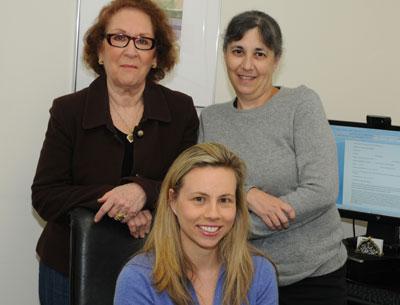New Mental Health Clinic for Children

Since she first started seeing pediatric patients more than 30 years ago, Gail Schonfeld has bemoaned the dearth of mental health services for children and adolescents on the East End.
With waiting lists stretching six months or more, not to mention the difficulty of transportation and the lack of clinicians who accept insurance, Dr. Schonfeld finally took matters into her own hands.
After convening regular Sunday morning work sessions with concerned citizens and mental health professionals, Dr. Schonfeld, along with Sheila Rogers of the East Hampton Healthcare Foundation and Kristie Golden of South Oaks Hospital in Amityville, decided to join forces.
Since December, the partnership has resulted in the South Oaks Child and Adolescent Center of East Hampton — a satellite clinic that operates out of donated office space inside the East Hampton Healthcare Center on Pantigo Place.
The clinic, which houses one part-time social worker, is just down the hall from East End Pediatrics, Dr. Schonfeld’s medical practice. George Dempsey, who runs East Hampton Family Medicine, also refers patients.
“Prevention is key,” said Dr. Schonfeld, who described the stigma surrounding mental health as part of the reason behind the continued lack of services. “I have witnessed the consequences of inadequate services and I’ve been continually frustrated by it.”
The satellite clinic was made possible by a $50,000 seed grant from the New York State Office of Mental Health. The healthcare foundation, which donated the office space, has also provided a $25,000 grant to offset additional costs. For the next year, the grant money will fund the cost of having the social worker, Christina Acheson, assigned to the pediatric practice. She sees patients four days a week.
Once the year is up, the program will have to rely on insurance billing to meet its bottom line. But relying on insurance money is no sure bet. According to Dr. Schonfeld, most Medicare and managed-care plans reimburse mental health services at a lower rate than the actual cost of the care.
The alternative is to seek out a non-profit or additional grant money to help subsidize the expenses.
“Many children have been in desperate need of mental health services and they haven’t been available. It’s been a continuing problem,” said Ms. Rogers, who directs the healthcare foundation. “There have been a lot of problems in the schools and with bullying and this all needs to be resolved here, right in our own community — and not have to run a child all the way to Stony Brook.”
Dr. Golden, vice president of ambulatory and community services at South Oaks, a well-respected psychiatric hospital, sees the integration of physical and mental health as a more holistic approach to treating a child.
“It allows for a patient to be seen for their needs in a setting that’s comfortable and familiar to them,” said Dr. Golden, who has been working to integrate mental health services into primary-care offices. “It’s much more likely that a patient or a family member will follow through if the referral takes place in their doctor’s office.”
Dr. Schonfeld conceded that mental health services remain grossly inadequate in quantity, though not, she said, in quality. Dr. Eric J. Bartky, a child and adolescent psychiatrist based in Southampton, is also seeing patients part-time, and the new program, said Dr. Schonfeld, signals a definitive step in the right direction. In future years, a bilingual clinician is a priority, as increasing numbers of her patients come from Spanish-speaking families.
“It’s a start, and you have to start somewhere,” said Dr. Schonfeld. “Once the grant is up, the challenge will be to keep it going. There will be some need for raising funds, but we’ve got to find a way to raise the money to keep it going.”
